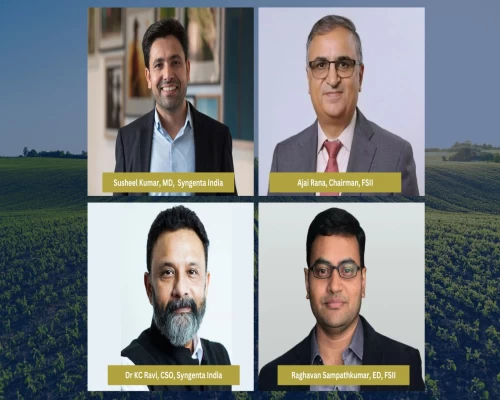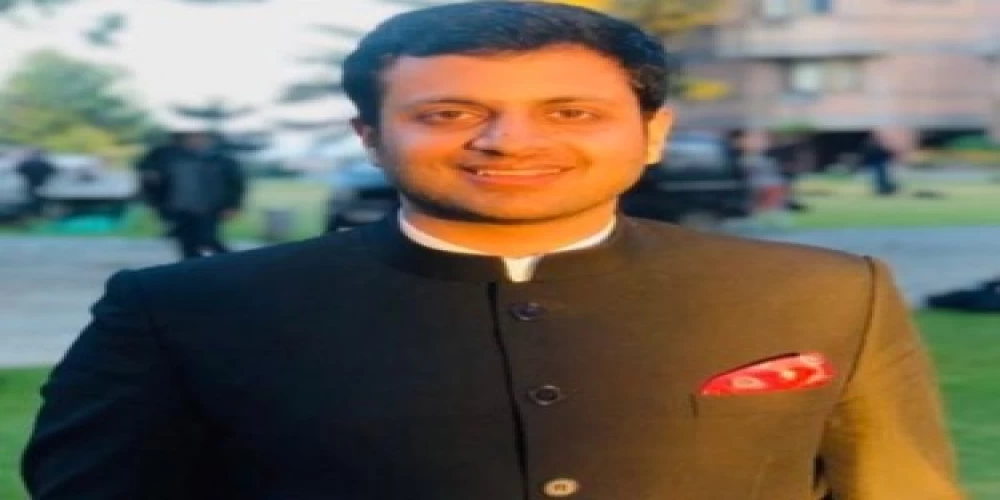
New Delhi: An officer of the 2018 batch, Vikramaditya Singh Malik has already left an indelible mark on the administrative landscape in a short span of time. One of the most notable initiatives he led was the "Bikes of Bijnor" project, which emerged during the first wave of the COVID-19 pandemic. “Repurposing abandoned cycles left behind by migrants, in collaboration with the District Magistrate, we worked on transforming these bicycles into a public bike-sharing program. This initiative not only promoted sustainable transportation but also fostered community engagement,” said Malik.
A strong advocate of ‘Minimum Government, Maximum Governance’, the inspiring young IAS officer Vikramaditya Singh Malik, Chief Development Officer, Ghaziabad, UP; joined us in the special episode of Bureaucrats India Dialogue with Dr Navneet Anand, Editor-in-Chief, Bureaucrats India.
Despite challenges, 100 people embraced the project, leading to the establishment of 10 stands across the district. The project's resilience, even in the face of setbacks, underscored its meaningful impact. The Union Minister for Highway and Road Transport commended the project, drawing parallels between it and the innovative vehicle scrapping policy. Additionally, the project secured a place among the top 10 innovative ideas acknowledged by the Capacity Building Commission.

Malik's unconventional path led him through NALSAR Law School and a Master's at Oxford. What drives Malik's passion for civil service is the profound social impact it can trigger. Malik’s decision to embark on this journey of civil services despite working at a leading law firm was fueled by a desire to make a direct and immediate difference.
His journey to the civil services wasn't devoid of challenges. His failures in the UPSC examinations before achieving success mirrored the resilience learned from his love for sports. Drawing inspiration from sports icons like MS Dhoni, he imbibed the value of composure and detachment from outcomes. These traits proved invaluable not only in his examination journey but also in navigating the intricacies of his role as an IAS officer.
Recognizing the transition from a system where people approached the government to one where the government reaches out to the people, Malik highlights, “The paradigm shift aligns seamlessly with the principle of "minimum government, maximum governance" advocated by Hon’ble Prime Minister Narendra Modi Ji. Technological integration and reduced human discretion enhance transparency. Checks and balances like RTIs, an active judicial system, the press, and social media have evolved significantly, fostering transparency and accountability. While there are pros and cons, increased accountability leads to progress.”
Highlighting how governance has changed and governments are reaching out to citizens, Mailk cites the example of "Janata Darshan" sessions of Chief Minister of Uttar Pradesh which exemplifies this shift towards people-centric governance. “These sessions facilitate direct interaction between officials and citizens, expediting issue resolution at the grassroots level. Moreover, government initiatives now directly benefit the people, bringing schemes, welfare plans, and employment opportunities to the forefront. This transition reflects the government's commitment to accessible and responsive governance,” said Malik.
The COVID-19 pandemic underscored the importance of social media as a governance tool. Malik's experience during the Delta phase highlighted the role of platforms like Twitter in addressing urgent grievances related to healthcare services. He highlights, “Social media has evolved into an effective means of showcasing government work while simultaneously addressing citizen complaints.”
Ghaziabad posed unique challenges for Malik, particularly in terms of land scarcity and pond rejuvenation. Leveraging regulatory requirements and corporate social responsibility, Malik and his team found innovative solutions. The utilization of the Jal Board's regulatory mandate for water withdrawal ensured the rejuvenation of water bodies. This approach not only resolved funding shortages but also enhanced the aesthetics of the city while fostering recreational spaces for villagers.

“Through monitoring and reinforcement, we successfully completed 85 Amrit Sarovars by April of 2023. Our achievements ranked us first in performance for Amrit Sarovars, with the UP government achieving 96% of the set target. We transformed landfill areas into beautiful ponds, enhancing the city's aesthetics and reputation. Fisheries were introduced for maintenance and aeration, and our efforts received recognition from higher authorities,” Malik said while highlighting how collaborations and coordinated efforts can spur innovative solutions.
One of Malik's most impactful interventions at Ghaziabad has been the introduction of the Patient Referral Tracking Management System (PRTMS) in healthcare. This system streamlined patient referrals, ensuring seamless transitions between lower-level facilities and higher ones. This innovative approach enhanced healthcare access, efficiency, and accountability in Ghaziabad. The system's success has led Malik to consider converting it into an app for easier access and use. As a firm advocate for the responsible integration of Artificial Intelligence (AI) into governance, Malik recognizes the importance of maintaining a balanced approach. “While AI can optimize processes and services, preserving human control is essential,” he avers.
Malik belongs to an illustrious family. His father, Yudhvir Singh Malik a former IAS officer of the 1983 batch has had an illustrious career - serving among others, as Chairman of National Highways Authority of India, CEO of Food Safety & Standards Authority of India, and Union Road Transport & Highways Secretary. His high calibre and track record have led the Government of India to appoint him as Chairman and Managing Director of the crisis-hit realty firm Unitech in 2020. Malik's sister Surabhi Malik is also an IAS officer and currently serving as Deputy Commissioner of Ludhiana in Punjab. Malik’s mother - the strongest influence in his life - Suchita Malik is a Professor of English and an acclaimed author. Her books The Nest of the Recluse, Scent of the Soil, Memsahib’s Chronicles, and Indian Memsahib are widely admired pieces of work. “She has been the cornerstone of my inspiration, while my father and sister have left an indelible mark on my growing up, and what I do today is steered by their constant guidance,” said Malik. Their values and perseverance have fueled Malik's ambition to contribute positively to governance and policy.
“My journey to civil services was driven by a genuine desire to contribute positively to governance and policy. I focused on the process and the end goal, keeping motivation high through interests like sports. During challenging times, my family's support and a positive environment played a vital role. Success requires hard work, the right mindset, positive influences, and staying true to your purpose,” said Malik.
Young and raring to go, Malik is sure to contribute very strongly to the governance ecosystem.



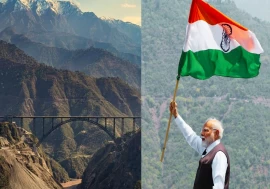
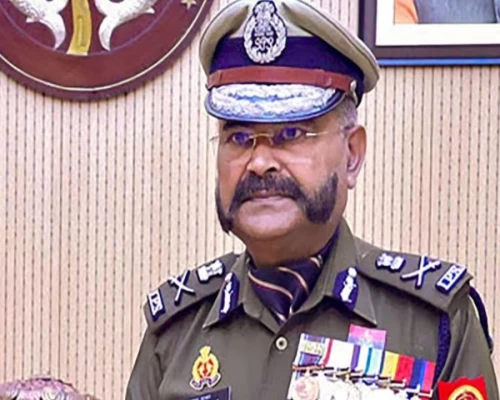
 (14)_500_x_400.webp)
 (4) (1)_500_x_400.webp)
 (2) (1)_500_x_400.webp)


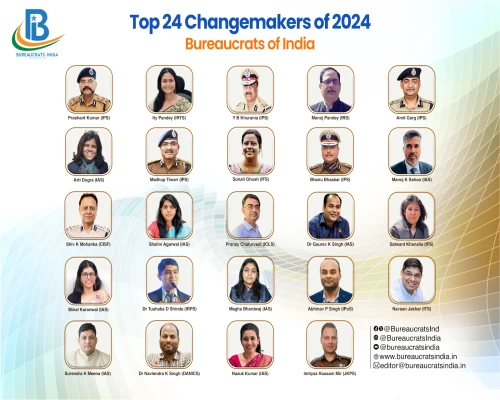
_500_x_400.webp)
